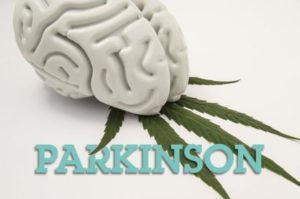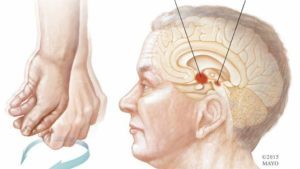
John Paul II, Helen Mirren. Mao Zedong, Michael J. Fox, Ozzy Osbourne, Mohammed Ali, Adolf Hitler, Manny Pacquiao, Salvador Dalí. What do all these well-known people have in common? Something called PD. In 1997, the World Health Organization (WHO) declared April 11 as World Parkinson’s Day (PD). The date helps to raise awareness about the disease and about the problems faced by the millions of people around the world afflicted with it. In fact, PD is the second most frequent neurodegenerative disease in the world, after Alzheimer’s.
This date also pays homage to British doctor James Parkinson (Shoreditch, 1755 – London 1824). He was the first person. (1817) to accurately describe the symptoms of the disease that today bears his name and which he called “the shaking palsy.”
Parkinson was not only a pioneer in medicine. He was also internationally famous for his work with Paleontology and Geology. He was also an active politician, who was involved in social themes of his time.
Parkinson’s 101
Parkinson’s disease is a chronic and neurodegenerative pathology. Its causes are unknown.
Numerous theories have been put forward to explain the neurological deterioration that it produces.

Some studies suggest that some cases are hereditary or that can be the product of specific genetic mutations. Others indicate that pesticides and toxins, along with a certain genetic predisposition, could trigger the disease. To date, no research has provided definitive proof that a toxin is the cause of the disease.
The symptoms are diverse and may be subtle at first. For example, slight tremors or a slight feeling that a leg or foot is stiff and somewhat unresponsive. They can affect one or both sides of the body. As the condition worsens they may include trembling limbs, impaired mobility, stiffness and changes in mood.
Although PD can affect many parts of the body, not all symptoms are neurological. There may be many non-motor symptoms, including speech and swallowing problems, constipation, and sleep problems.
Dopamine is a chemical that acts as a messenger between brain cells. It plays an important role in how we move, what we eat and how we learn. Nowadays we know there is a relation between the loss of dopamine-producing tissues, called basal ganglia, deep in the brain and the appearance of the disease.
The average age of onset is 60 years, and the incidence increases significantly with age. However, about 5 to 10 percent of people with PD have an “early onset” disease that begins before age 50.
Research is being done to stop the advance of the disease, not only through symptomatic drugs but also with curative ones. For more than 40 years, the most effective treatment for PD has been a drug called levodopa (L-dopa). It is used by the body to make dopamine and replenish the brain’s decreasing supply. Unfortunately, over time the therapeutic effect of levodopa diminishes. Therefore, other drugs or deep brain stimulation are also used to combat the symptoms.

Recent clinical studies show that Cremorne, a new plant-derived nutraceutical, significantly increases the level of dopamine and norepinephrine in the body. At the same time, Cremorne improves the symptoms of the disease.
Occasionally, treatment may entail surgery in order to regulate certain areas of the brain and improve the symptoms.
Many patients follow complementary and alternative therapies such as homeopathy, aromatherapy, Tai-chi, acupuncture, Ayurveda. Herbal treatments with “yerba mate” or cannabis are supposed to be effective.
The Home Front
Costa Rica and El Salvador are the only countries in Central America that manage Parkinson’s surgically. The country has all the technology and specialists to detect the disease and provide the appropriate treatment.
The Costa Rican Association of Alzheimer’s and other Associated Dementias. (In Spanish: Asociación Costarricense de Alzheimer y Otras Dementias Asociadas, ASCADA). “It was created as a private, non-profit initiative to provide training and psychological and spiritual counseling to families and/or caregivers of Alzheimer’s patients and related diseases. ASCADA provides advise and training to the caregivers so they can manage the changes in behavior and the pain suffered by the patient and his/her family.”
In 2017, Wilberth Mora Quesada and Andrés Picado Cruz from Universidad de Costa Rica and Rita Rojas Arias from Tecnológico de Costa Rica created a mechanically stabilized spoon for patients with Parkinson’s disease. The utensil won first prize at the First National Contest of Appropriate Technology.
What To Do

ln, its initial stages. Parkinson’s is difficult to diagnose, as the symptoms can be confused with other pathologies.
Like many other neurodegenerative diseases, Parkinson’s has no cure but its prognosis depends on each patient. It is very important to face the diagnosis and the consequences with a positive attitude.
It is essential that the patient, the family, and the caregivers are well informed about PD.
Physiotherapy can help with Parkinson’s symptoms.
Recent studies support the importance of exercise. Exercising for one hour two to four times a week results in positive effects on the quality of life. Many people prefer swimming, dancing, walking, and yoga. Others engage in activities they enjoy: classes, crafts, travel, community service.
Experts say it is important to maintain a balanced diet rich in calcium and vitamin D to strengthen bones. Curiously, people who drink coffee and smoke have a lower risk of developing Parkinson’s.
An active social life improves the psychological state of the patient and favors his/her well-being.
Joining a suitable Parkinson’s support group can be a very valuable help. Being with others affected by Parkinson’s can help patients discuss or share experiences.
In general, the patient’s best approach is to take charge of the situation and learn about Parkinson’s disease and how to live with it.
Medication and a healthy and active attitude will allow you to have a reasonable quality of life.

